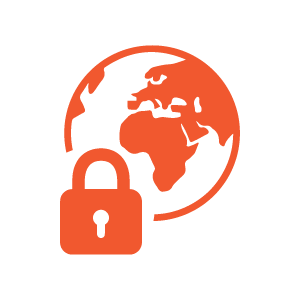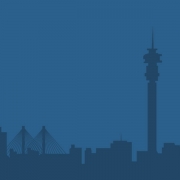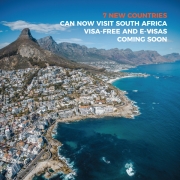Archive for year: 2019
NEWS | UNEMPLOYMENT CONTINUES ITS UPWARD TRAJECTORY – INCREASING PRESSURE ON FINDING CRITICAL SKILLS
/in News /by xp-adminAccording to the statistics there has been an increase of 1.4 percentage points in unemployment from the first quarter of this year. This means that almost 7 million people are unemployed and just over 16 million people have a job.
A recent critical skills survey by Xpatweb shows several sectors in the economy are experiencing critical skill shortages. The sectors experiencing the most pressure include information and technology, engineering, finance and health.
The Critical Skills list is currently under review by the Department of Home Affairs and a new list is expected to be released before the end of 2019 for public comment.
However, the Xpatweb survey shows that the country is currently in desperate need of the following skills:
- ICT Specialist
- Engineers
- Artisans
- Senior Financial Executives
- Health Sector
- Executive Managers
- Specialists & Academics
- Mining Executives
- Risk Managers
- Foreign Language Speakers
IT specialists and engineers remain top of the list of skills that are most difficult to find. Occupations in high demand in terms of the health sector, artisans, finance and ICT specialist have all increased this year.
According to the World Health Organisation (WHO), South Africa has an average of one doctor and one nurse per 1,000 patients. Hospitals are crowded, but understaffed, as shortages of skilled professionals in this sector continues to be an issue.
IT Specialists are becoming a highly sought-after resource in the wake of the Fourth Industrial Revolution (4IR). In a report published by the World Economic Forum over one-third of skills (35%) that are considered important in today’s workforce will have changed over the next five years.
By 2020, the Fourth Industrial Revolution will have brought us advanced robotics and autonomous transport, artificial intelligence and machine learning, advanced materials, biotechnology and genomics.
Government revealed in 2017 that South Africa has a shortfall of about 40,000 qualified artisans. This forced it to import skilled artisans from various countries to complete time sensitive projects.
The Xpatweb survey results show that this still remains an issue, with 14.15% of the respondents indicating that it is difficult to find skilled artisans. This represents an increase of 45% from last year.
There is little doubt that skills are essential to economic growth, job creation and the future prosperity of South Africa.
It is a growing challenge worldwide, affecting industries from ICT to manufacturing to finance, with jobseekers lacking the required skills, and those with the desired capabilities and experience, in high demand.
Employers have to compete locally and internationally for skilled talent which increasingly places pressure on organisations.
The Xpatweb survey also showed that 62% of participants blamed the visa process as the greatest prohibitor to recruiting internationally.
However, several visa-related reforms are on the cards, which is in line with President Cyril Ramaphosa’s Economic Stimulus and Recovery Plan. This includes a review of the critical skills list expected to be published later this year.
Xpatweb is once again conducting its survey and the 2019 results will be submitted to the Department of Home Affairs and Parliament in line with the White Paper on International Migration and Department of Higher Education and Training National List of Occupations in High Demand and specifically to address any occupations not catered for on the new draft list.
The survey offers an opportunity for mobility and human resource practitioners to help shape law. (See link below to participate in this year’s survey).
In order to tackle the skills shortage in SA, it is important that policies such as the Skills Development Plan and the Skills Development Act support job creation and economic growth. It is equally vital that organisations contribute to building local skills, through increased training and development and putting in place succession planning at executive level.
For the youth, it cannot be stressed enough that when choosing a career, it is important to do the necessary research in terms of occupations in high demand and to use the information when making decisions about which path to pursue.
AUTHOR 
Lerato Mahupela
Immigration Specialist
NEWS | MERCER’S QUALITY OF LIVING CITY RANKING
/in Archived, News, Xpatweb News /by xp-adminWHAT FACTORS DETERMINE QUALITY OF LIVING?
These factors are evaluated in Mercer’s Quality of Living Reports, which offer city-to-city comparisons for nearly 500 global assignment destinations.

Recreation

Housing

Economic environment

Consumer goods availability

Public services and transport

Political and social environment

Natural environment

Socio-cultural environment

School and education

Medical and health considerations
MERCER’S 25TH ANNUAL COST OF LIVING SURVEY REVEALS N’DJAMENA IS THE HIGHEST RANKING IN AFRICA
- Cities in Asia are the most expensive locations for employees working abroad
- Multinationals’ focus on mobility as a workforce strategy supports career growth and global competitiveness
Mercer, a global consulting leader in advancing health, wealth and careers, and a wholly owned subsidiary of Marsh & McLennan Companies (NYSE: MMC), has released the results of its 2019 Cost of Living survey, ranking cities around the world. Mercer’s 25th annual Cost of Living Survey finds that a number of factors, including currency fluctuations, cost of inflation for goods and services, and volatility in accommodation prices, contribute to the overall cost of expatriate packages for employees on international assignments. According to the report, N’Djamena, Chad takes the lead as the highest-ranking city in Africa.
In a rapidly changing world, mobility programs have become a core component of multinational organizations’ global talent strategy. Organizations realize that to thrive they must embrace change, adapt to new technologies, and build emerging skills to attract, motivate, and enhance talent.
“In a skill-focused economy driven by digital disruption and the need for a globally connected workforce, deploying expatriate employees is an increasingly important aspect of a competitive business strategy for global companies,” said Ilya Bonic, President of Mercer’s Career business. “There are numerous personal and organizational advantages for sending employees overseas, including career development, global experience, new skillsets, and re-allocation of resources. By offering fair and competitive compensation packages, organizations can facilitate moves that drive business results.”
Key African Findings
Kinshasa, Dem. Rep. of Congo (22) is in second place, rising fifteen places. Libreville, Gabon (24) is the next African city on the list, followed by Lagos, Nigeria (25), which moved up seventeen places.
Despite dropping about 20 places, Luanda, Angola (26) still remains in fifth place.
As compared to last year’s report, some African countries like Conakry in Guinea and Nairobi, Kenya have gone up from 106 to 88 and from 123 to 97 respectively.
Douala in Cameroon and Maputo in Mozambique have seen a noticeable increase in exchange rates. Whereas the opposite has been recorded for Brazzaville, Congo (39). Other costly African cities include Dakar (72) and Abuja (85).
“Contrary to the perception that the African market is very volatile, certain factors like currency fluctuations and housing costs contribute to varying Cost of Living differentials in developed economies,” said Yolanda Sedlmaier, Principal Leader – Africa Mobility at Mercer. “Each African country has its own unique economy and this is why multinationals need not approach their expatriate packages for Africa with one single strategy. Let’s look at it this way, while a city like N’Djamena in Chad has been listed as the 11th most expensive city in the world, whereas Mali comes in at the 124th position in terms of cost of living,” Yolanda Sedlmaier, added.
Global ranking
Mercer’s 2019 Cost of Living Survey finds that eight out of the top ten of the world’s most expensive cities for expatriates are Asian cities, resulting from high costs for expatriate consumer goods and a dynamic housing market. Tokyo (2), Singapore (3) and Seoul (4) top the list, while the costliest city in the world for the second consecutive year is Hong Kong (1). Other cities appearing in the top ten are Zurich (5), Shanghai (6), Ashgabat (7), Beijing (8), New York City (9), and Shenzhen (10). The world’s least expensive cities for expatriates are Tunis (209), Tashkent (208), and Karachi (207).
Mercer’s widely recognized survey is one of the world’s most comprehensive, and is designed to help multinational companies and governments determine compensation allowances for their expatriate employees. New York City is used as the base city for all comparisons, and currency movements are measured against the US dollar. The survey includes over 500 cities throughout the world; this year’s ranking includes 209 cities across five continents and measures the comparative cost of more than 200 items in each location, including housing, transportation, food, clothing, household goods, and entertainment.
Mercer produces individual cost of living and rental accommodation cost reports for each city surveyed.
Notes for Editors
The figures for Mercer’s cost of living and rental accommodation cost comparisons are derived from a survey conducted in March 2019. Exchange rates from that time and Mercer’s international basket of goods and services from its Cost of Living Survey have been used as base measurements.
Governments and major companies use data from this survey to protect the purchasing power of their employees when transferred abroad; rental accommodation costs data is used to assess local expatriate housing allowances. The choice of cities surveyed is based on demand for data.
MERCER COST OF LIVING SURVEY RESULTS
WORLDWIDE RANKINGS 2019
Claiming eight of the top 10 spots, Asian cities continue to dominate the list of most expensive locations for working abroad in Mercer’s 2019 ranking. Western Europe dominates the ranking with Luxembourg named as the safest city in the world.
WORLDWIDE RANKINGS 2019
| Rank | City | Country/Region |
|---|---|---|
| 1 | Vienna | Austria |
| 2 | Zürich | Switzerland |
| 3 | Vancouver | Canada |
| 3 | Munich | Germany |
| 3 | Auckland | New Zealand |
| 6 | Düsseldorf | Germany |
| 7 | Frankfurt | Germany |
| 8 | Copenhagen | Denmark |
| 9 | Geneva | Switzerland |
| 10 | Basel | Switzerland |
| Rank | City | Country/Region |
|---|---|---|
| 11 | Sydney | Australia |
| 11 | Amsterdam | Netherlands |
| 13 | Berlin | Germany |
| 14 | Bern | Switzerland |
| 15 | Wellington | New Zealand |
| 16 | Toronto | Canada |
| 17 | Melbourne | Australia |
| 18 | Luxembourg | Luxembourg |
| 19 | Ottawa | Canada |
| 19 | Hamburg | Germany |
| 21 | Perth | Australia |
| 21 | Montréal | Canada |
| 23 | Nuremburg | Germany |
| 23 | Stockholm | Sweden |
| 25 | Oslo | Norway |
| 25 | Singapore | Singapore |
| 27 | Stuttgart | Germany |
| 28 | Brussels | Belgium |
| 29 | Adelaide | Australia |
| 30 | Canberra | Australia |
| 31 | Helsinki | Finland |
| 32 | Calgary | Canada |
| 33 | Dublin | Ireland |
| 34 | San Francisco | United States |
| 35 | Brisbane | Australia |
| 36 | Boston | United States |
| 37 | Lisbon | Portugal |
| 37 | Honolulu | United States |
| 39 | Paris | France |
| 40 | Lyon | France |
| 41 | Milan | Italy |
| 41 | London | United Kingdom |
| 43 | Barcelona | Spain |
| 44 | New York | United States |
| 45 | Edinburgh | United Kingdom |
| 46 | Madrid | Spain |
| 46 | Seattle | United States |
| 48 | Glasgow | United Kingdom |
| 49 | Kobe | Japan |
| 49 | Tokyo | Japan |
| 49 | Birmingham | United Kingdom |
| 49 | Chicago | United States |
| 53 | Washington | United States |
| 54 | Philadelphia | United States |
| 55 | Yokohama | Japan |
| 56 | Rome | Italy |
| 57 | Aberdeen | United Kingdom |
| 58 | Osaka | Japan |
| 59 | Pittsburgh | United States |
| 60 | Leipzig | Germany |
| 61 | Minneapolis | United States |
| 62 | Nagoya | Japan |
| 63 | Dallas | United States |
| 64 | Belfast | United Kingdom |
| 64 | Atlanta | United States |
| 66 | Houston | United States |
| 66 | Los Angeles | United States |
| 66 | Miami | United States |
| 69 | Prague | Czech Republic |
| 70 | St. Louis | United States |
| 71 | Hong Kong | Hong Kong SAR |
| 72 | Pointe-à-Pitre | Guadeloupe (France) |
| 72 | Detroit | United States |
| 74 | Ljubljana | Slovenia |
| 74 | Dubai | United Arab Emirates |
| 76 | Budapest | Hungary |
| 77 | Seoul | South Korea |
| 78 | Abu Dhabi | United Arab Emirates |
| 78 | Montevideo | Uruguay |
| 80 | Bratislava | Slovakia |
| 81 | Vilnius | Lithuania |
| 82 | Warsaw | Poland |
| 83 | Port Louis | Mauritius |
| 84 | Taipei | Taiwan |
| 85 | Kuala Lumpur | Malaysia |
| 86 | Limassol | Cyprus |
| 86 | Tallinn | Estonia |
| 88 | Durban | South Africa |
| 89 | Athens | Greece |
| 90 | Riga | Latvia |
| 91 | Buenos Aires | Argentina |
| 92 | San Juan | Puerto Rico |
| 93 | Santiago | Chile |
| 94 | Busan | South Korea |
| 95 | Cape Town | South Africa |
| 96 | Johannesburg | South Africa |
| 97 | Panama City | Panama |
| 98 | Zagreb | Croatia |
| 98 | Victoria | Seychelles |
| 100 | Wroclaw | Poland |
| 101 | Johor Bahru | Malaysia |
| 101 | Taichung | Taiwan |
| 103 | Shanghai | China |
| 104 | Tel Aviv | Israel |
| 105 | Muscat | Oman |
| 106 | Bandar Seri Begawan | Brunei |
| 107 | Brasilia | Brazil |
| 108 | San José | Costa Rica |
| 109 | Bucharest | Romania |
| 110 | Noumea | New Caledonia |
| 110 | Doha | Qata |
| 112 | Nassau | Bahamas |
| 113 | Monterrey | Mexico |
| 114 | Tunis | Tunisia |
| 115 | Asunción | Paraguay |
| 116 | Sofia | Bulgaria |
| 117 | Rabat | Morocco |
| 118 | Rio de Janeiro | Brazil |
| 119 | São Paulo | Brazil |
| 120 | Beijing | China |
| 120 | Amman | Jordan |
| 122 | Guangzhou | China |
| 122 | Quito | Ecuador |
| 124 | Casablanca | Morocco |
| 124 | Lima | Peru |
| 126 | Kuwait City | Kuwait |
| 127 | Manaus | Brazil |
| 128 | Bogotá | Colombia |
| 129 | Mexico City | Mexico |
| 130 | Istanbul | Turkey |
| 131 | Windhoek | Namibia |
| 132 | Shenzhen | China |
| 133 | Bangkok | Thailand |
| 134 | Chengdu | China |
| 135 | Santo Domingo | Dominican Republic |
| 136 | Manama | Bahrain |
| 137 | Manila | Philippines |
| 138 | Colombo | Sri Lanka |
| 139 | Belgrade | Serbia |
| 140 | Nanjing | China |
| 141 | Gaborone | Botswana |
| 142 | Jakarta | Indonesia |
| 143 | Hyderabad | India |
| 143 | Pune | India |
| 145 | Xian | China |
| 146 | Qingdao | China |
| 147 | Port of Spain | Trinidad & Tobago |
| 148 | Chongqing | China |
| 149 | Bengaluru | India |
| 150 | Lusaka | Zambia |
| 151 | Chennai | India |
| 152 | Kingston | Jamaica |
| 153 | Ho Chi Minh City | Vietnam |
| 154 | Mumbai | India |
| 155 | Hanoi | Vietnam |
| 156 | La Paz | Bolivia |
| 156 | Sarajevo | Bosnia-Herzegovina |
| 158 | Shenyang | China |
| 158 | Guatemala City | Guatemala |
| 160 | Kolkata | India |
| 161 | Skopje | Macedonia |
| 162 | New Delhi | India |
| 163 | Dakar | Senegal |
| 164 | Riyadh | Saudi Arabia |
| 165 | Accra | Ghana |
| 166 | Libreville | Gabon |
| 167 | Moscow | Russia |
| 168 | Jeddah | Saudi Arabia |
| 169 | Jilin | China |
| 170 | Yerevan | Armenia |
| 171 | Vientiane | People’s Democratic Republic of Laos |
| 172 | Kampala | Uganda |
| 173 | Kyiv | Ukraine |
| 174 | St. Petersburg | Russia |
| 175 | Tirana | Albania |
| 175 | San Salvador | El Salvador |
| 177 | Cairo | Eqypt |
| 177 | Almaty | Kazakhstan |
| 179 | Banjul | Gambia |
| 180 | Managua | Nicaragua |
| 181 | Blantyre | Malawi |
| 182 | Cotonou | Benin |
| 183 | Maputo | Mozambique |
| 184 | Beirut | Lebanon |
| 185 | Algiers | Algeria |
| 186 | Nairobi | Kenya |
| 187 | Tbilisi | Georgia |
| 188 | Minsk | Belarus |
| 189 | Djibouti | Djibouti |
| 189 | Tegucigalpa | Honduras |
| 191 | Kigali | Rwanda |
| 192 | Havana | Cuba |
| 193 | Yaounde | Cameroon |
| 194 | Islamabad | Pakistan |
| 195 | Baku | Azerbaijan |
| 196 | Phnom Penh | Cambodia |
| 197 | Douala | Cameroon |
| 198 | Dar es Salaam | Tanzania |
| 199 | Luanda | Angola |
| 199 | Tehran | Iran |
| 201 | Karachi | Pakistan |
| 202 | Caracas | Venezuela |
| 203 | Yangon | Myanmar |
| 203 | Lome | Togo |
| 203 | Tashkent | Uzbekistan |
| 206 | Bishkek | Kyrgyzstan |
| 207 | Lahore | Pakistan |
| 208 | Abidjan | Cote d’Ivoire |
| 209 | Addis Ababa | Ethiopia |
| 210 | Harare | Zimbabwe |
| 211 | Ashgabat | Turkmenistan |
| 212 | Lagos | Nigeria |
| 213 | Abuja | Nigeria |
| 214 | Antananarivo | Madagascar |
| 215 | Dushanbe | Tajikistan |
| 216 | Ouagadougou | Burkina Faso |
| 217 | Dhaka | Bangladesh |
| 218 | Tripoli | Libya |
| 218 | Niamey | Niger |
| 220 | Bamako | Mali |
| 221 | Nouakchott | Mauritania |
| 222 | Conakry | Guinea Republic |
| 223 | Kinshasa | Democratic Republic of the Congo |
| 224 | Brazzaville | Congo |
| 225 | Damascus | Syria |
| 226 | N’Djamena | Chad |
| 227 | Khartoum | Sudan |
| 228 | Port au Prince | Haiti |
| 229 | Sana’a | Yemen Arab Republic |
| 230 | Bangui | Central African Republic |
| 231 | Baghdad | Iraq |
Source: Mercer’s 2019 Cost of Living Survey
NEWS | 7 NEW COUNTRIES CAN NOW VISIT SOUTH AFRICA VISA-FREE AND E-VISAS COMING SOON
/in Archived, News /by xp-adminThe minister of Home Affairs, Aaron Motsoaledi, confirmed that the following seven new countries will be added to the list of nations that are able to come to South Africa without a visa for a period of up to 90 days:
- Qatar
- United Arab Emirates
- New Zealand
- Saudi Arabia
- Cuba
- Ghana
- Sao Tome and Principe
The minister said that his office will immediately enter discussions with the abovementioned countries about how a visa-free regime will work, with “homework” still needing to be done for countries like China, India and Nigeria.
The department spokesperson said that the countries announced by the minister, only apply to inbound visas (citizens from the listed countries visiting South Africa), and that outbound visas (South Africans visiting the countries listed) need to be negotiated on a country-by-country basis, and some countries, such as Qatar and Ghana, already have visa-free or visa on arrival agreements with South Africa.
According to the latest Henley Passport Index, South Africans can visit 99 countries around the globe visa-free.
Also speaking at the department’s budget vote, deputy minister of Home Affairs, Njabulo Nzuza said that the department is moving forward with the implementation of the country’s e-Visa regime.
The e-Visa system will allow tourists and visitors coming to South Africa to apply for their visas online. These applications will then be sent to a central adjudication and approval office, while the prospective visitors “remain in the comfort of their own home”.
The new system will also open South Africa as a desirable destination through the ease of its visa systems, the deputy minister said, adding that it will have huge tourism growth implications for the country.
AUTHOR
Sunny Qiao
Immigration Consultant
NEWS | HOW MANY SOUTH AFRICANS ARE SELLING UP AND EMIGRATING IN THE SECOND QUARTER?
/in Archived, News /by xp-admin“Concerningly, ‘downscaling due to financial pressure’ has become increasingly prominent in the past year – the estimated proportion of such sales jumped to 19% in 2Q19 from 16% in 1Q19,” FNB said.
“This is consistent with our view that household finances are under pressure.”
FNB said that of those who sell due to financial pressure, around 60% now opt for the rental market, as opposed to a cheaper property.
“However, these trends do not appear to have benefited the rental market yet, as flat vacancies have continued rising and rental inflation is still muted,” it said.
Selling to leave
Also concerning is the number of people who are selling their home to leave the country.
“Emigration-driven sales have become a more prominent feature of the housing market in South Africa over the past two years,” FNB said.
“According to estate agents, these are estimated to have steadied at around 13.4% in 2Q19, marginally down from 14.2% in 1Q19.”
FNB said that this trend is more prevalent in the higher end of the market, although appears to have spilled over to the lower ends as well.
It added that the spike in the lower and middle ends could, in part, be explained by upper-income owners disposing of their investment properties.
Source FNB Estate Agents Survey
Brain Drain
Reports from emigration assistance groups and local banks show that South Africa has seen a sharp rise in the number of skilled people emigrating.
According to Marisa Jacobs, director at immigration specialists Xpatweb, many of these South Africans are leaving for the United Kingdom, New Zealand and Australia with highly sought after skills.
She said that the company’s recently released annual Critical Skills Survey highlights the top critical skills that employers struggle to recruit within local borders and that have striking similarities between the jobs that are in demand in popular emigration destinations.
“Following last year’s survey, ICT specialists and engineers remain the most difficult to recruit, followed by artisans, senior financial executives, professionals in the health sector, executive managers, specialists & academics, mining executives, risk managers, and foreign language speakers.”
Source: BusinessTech
FIND US
Johannesburg
17 Eaton Avenue,
Bryanston, Johannesburg,
Gauteng, 2191
South Africa
George
55 York Street
Dormehls Drift
George, 6529
South Africa
CONTACT US
Telephone:
South Africa: 011 467 0810
Postal:
PO BOX 35046
Northcliff
2115
IN THE NEWS
- Another Positive Move To Attract More Tourists To SA
- Bringing in the Bomb Squad at Home Affairs
- How Home Affairs’ Immigration Reforms Could Drive SA’s Growth in 2025
- Phindiwe Mbhele on Remote Work Visa: Splendid Cape Town is wooing more and more digital nomads
- Cape Town Shines, and So Does South Africa’s New Critical Skills Visa Overhaul





